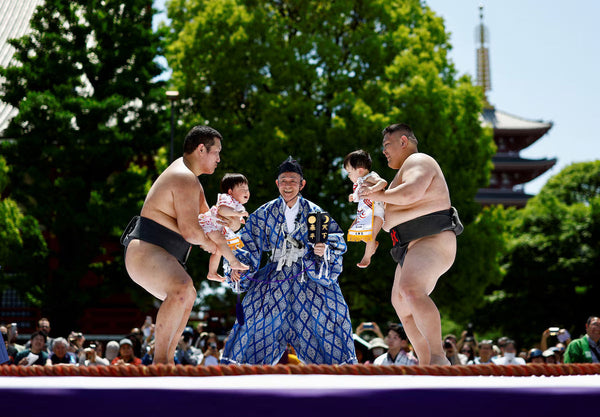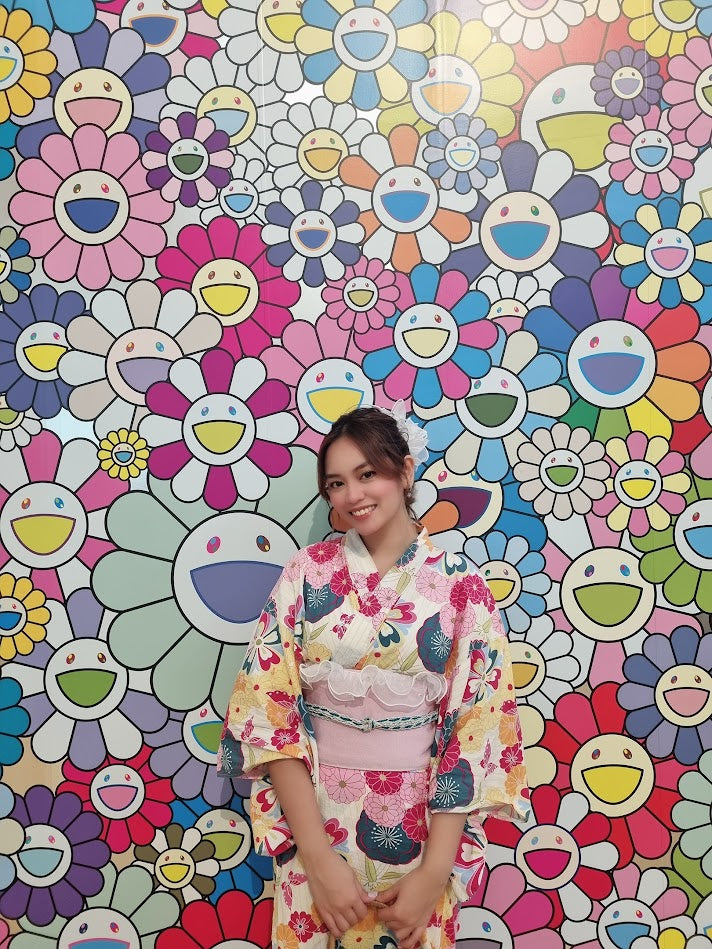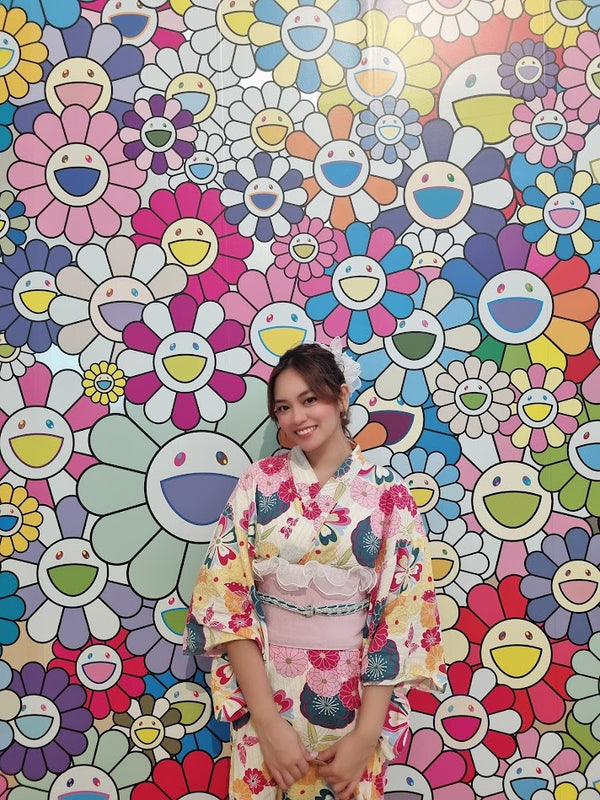
Jump to:
Think you know Japan? Sure, you’ve heard that slurping ramen is encouraged, but did you know there’s a baby crying competition? Or that there’s an actual word for hoarding books you never read (because, of course, there is)?
Welcome to the wonderfully weird side of Japan!
From hiring fake family members to being praised for napping at your desk, Japan is packed with quirky customs and cultural curveballs.
Get ready to say “ehhh?!” (Japanese cute expression for huh?!) more than once, because here are the top 20 lesser-known facts about Japan you probably haven’t heard yet!
1. There Are Vending Machines Near the Top of Mount Fuji

One of the most surprising things about Japan is just how everywhere vending machines are. With estimates ranging from over 4.1 million according to The Japan Times, there’s roughly one vending machine for every 23 to 31 people in the country. You’ll find them not just in bustling cities, but also in remote villages, quiet hiking trails, and even near the summit of Mount Fuji.
A bottle that costs $2 at the base might be over $6 at the top. A steep price, but one that makes perfect sense when you realize the machine was carried up by a bulldozer to 3,776 meters above sea level!
2. Japan Has a Sumo Baby Crying Contest (and It’s Kind of Adorable)

The Nakizumo Crying Baby Festival is one of Japan’s most charming and quirky traditions. Held each spring at Tokyo’s Sensoji Temple and other spots across the country, the event features sumo wrestlers gently holding babies in a ring and trying to make them cry; the first or loudest crier is declared the winner.
Rooted in the old belief that “crying babies grow strong and healthy,” the festival is meant to bless children with good health and ward off evil spirits. Parents pay around ¥15,000 (in USD$105) for their babies to take part, and hundreds join in each year.
Of course, not every baby feels like competing. Some stare into space, others peacefully doze off, much to the crowd’s amusement. Odd? Maybe. But also heartwarming, hilarious, and undeniably kawaii!
3. There’s a Japanese Word for Collecting Books You Swear to Read…Someday

You know that feeling when you buy new books, and your unread ones at home silently judge you from the shelf?
In Japan, there’s a word for that: tsundoku (積ん読), literally written with the kanji 積ん (tsun, “pile up”) and 読 (doku, “read”). It describes the habit of buying books with every intention to read them… only to let them sit and collect dust.
But don’t worry! Tsundoku isn’t frowned upon. In fact, it’s seen with a bit of self-aware affection. It reflects a love of learning and the eternal hope that one day, you’ll finally get around to reading them all.
The term dates back to Japan’s Edo Period (1603–1867), so book-hoarding guilt isn’t exactly new. According to the Tokyo Metropolitan Library, the book that is most likely to end up in a tsundoku pile is Marcel Proust’s In Search of Lost Time, a literary classic and a famously slow read.
So next time you add to your stack, don’t feel bad! Just call it what it is: the art of tsundoku.
4. There’s Also a Word for When You’re Eating Out of Boredom

Ever find yourself snacking not because you're hungry, but just... because? In Japan, there’s a word for that: kuchisabishii (口寂しい).
Literally written with the kanji 口 (kuchi, “mouth”) and 寂しい (sabishii, “lonely”), it translates to “a lonely mouth.” It perfectly captures that feeling when your mouth just wants something to do, like munching on chips or reaching for that extra cookie during a Netflix binge.
It’s not true hunger, but more like emotional or mindless eating. So the next time you’re standing in front of the fridge for no real reason, just know your mouth is lonely. Sounds funny and super literal, but it actually makes sense. Also… maybe drink some water!
5. Dating Officially Starts With a Confession

You’ve probably seen it in anime, but I didn’t realize it was still a real thing. In Japan, relationships often start with a love confession called kokuhaku (告白), written with the kanji 告 (koku, “to tell”) and 白 (haku, “to reveal”). It’s when someone says, “I like you. Will you go out with me?” and that’s when things become official.
It usually happens after a few dates (around the third), and until that moment, you’re not considered a couple. IMHO, it’s a pretty practical culture. They value time and are direct with their intentions.
6. Some Japanese Think Cheating Is Morally Acceptable

While only 12% of Japanese people say cheating is morally acceptable, this is still higher than in many other countries. Despite that, most Japanese still view infidelity, especially in marriage, as wrong. Japan’s legal system reflects this, allowing a spouse to sue their partner’s lover for adultery, since extramarital affairs are considered a breach of contract.
Culturally, however, cheating is viewed with more nuance. About 20% of married individuals admit to cheating (40% of men, under 20% of women), and many see marriage less as a romantic union and more as a social contract. Surprisingly, 84% of women and 61% of men who cheat say it actually helps their marriage, often as a way to cope with sexless relationships.
Cultural values like gaman (endurance) and shōganai (“it can’t be helped”) encourage tolerance over confrontation. Still, public figures face backlash, like Miss Japan returning her crown after it was revealed she had a relationship with a married man.
7. Saying “I Love You” (Aishiteru) Is Rare, Even Among Couples

In Japan, saying “I love you” (aishiteru) isn’t as common as you might think. A survey found that more than half of Japanese men in their 20s and 30s have never said it, and 64% of women in the same age group actually prefer the softer word suki (like) instead. Why? Many feel aishiteru is too heavy and dramatic for daily use.
This cultural norm was highlighted in 2021 when Kei Komuro, husband of former Princess Mako, told the press, “I love Princess Mako.” Instead of swooning, many Japanese reacted with discomfort.
Public expressions of deep affection, especially using strong words like aishiteru, are often seen as embarrassing. In Japan, love is usually shown through actions, not declarations. Because to many, what you do speaks louder than what you say.
8. Japan Actually Passed a Law to Fight Belly Fat

In Japan, being overweight isn’t illegal, but the government does take waistlines seriously. Under the “Metabo Law,” passed in 2008, companies and local governments are required to measure the waistlines of adults aged 45 to 74 during annual checkups.
If someone exceeds the limit (33.5 inches for men, 35.4 for women) and shows signs of metabolic syndrome, a cluster of conditions that increase the risk of heart disease and diabetes, they’ll be offered lifestyle guidance. There are no punishments for individuals, but companies may face penalties if too many employees are at risk.
This may or may not have a direct correlation, but only 4.5% of Japanese people are obese.
Wondering why is Japan healthy? Discover the secret behind their long lives and diet on the blog.
9. Japan Celebrates Manlihood Through Penis Festival

Every April in Kawasaki, Japan, the Kanamara Matsuri, known as the “Penis Festival”, is held to promote fertility, sexual health, and safe childbirth. Rooted in Shinto tradition, the festival began when sex workers prayed at Kanayama Shrine for protection from sexually transmitted diseases.
The shrine is dedicated to the deities Kanayamahiko and Kanayamahime, who are believed to have healed the goddess Izanami after a difficult childbirth.
Today, the event continues to honor these beliefs through sacred rituals and a symbolic parade of phallic-shaped shrines, while visitors snack on penis-shaped fodos and pose with cheeky souvenirs. It’s a lighthearted but meaningful event, and maybe the only place where buying a candy shaped like genitalia is culturally appropriate.
10. Love Hotels Are More Common Than You Think

According to Statista, Japan had around 4,700 love hotels in 2023. In a country where many people live with family or in apartments with thin walls, love hotels offer much-needed privacy for couples. These short-stay motels can be rented by the hour or night and are a normal part of dating culture in Japan.
Inside, you’ll find large beds, mood lighting, whirlpools, and even free condoms. Some hotels offer wild-themed rooms like dungeons, castles, or even a Hello Kitty dreamland. Others recreate spaces like inside a train station, with interiors that feel like you’re in an actual train.
While they’re mostly for romance, people also use them for fun photoshoots or chill hangouts.
Japan has over 33,000 sex-related businesses, and love hotels remain one of the most discreet options.
11. Many Japanese Businesses Are Unmanned

From gyms to capsule hotels, it’s common to find no staff on site. You just scan a code, enter, and enjoy. Japan’s love for automation makes things super convenient and surprisingly secure!
12. You Can Take a Nap at the Workplace

In Japan, inemuri (居眠り), napping at work or in public, is common and even encouraged. It reflects a strong work ethic, showing you’re so committed that you work to the point of exhaustion.
13. You Can Rent a Friend or Family

With rising loneliness and nearly 30% of Japan’s population over 65, rental family services are booming. Cultural pressure to hide true feelings (honne (本音) vs. tatemae (建前) ) and fear of social failure drive people to hire actors as partners, parents, or friends, to ease isolation.
14. You Can Hire Someone to Quit Your Job for You

In Japan, Taishoku Daiko services (退職代行サービス) let you hire someone to resign on your behalf. They handle all communication with your employer, making the stressful process easier. These services are especially popular with younger workers who want to avoid confrontation.
15. Some People Marry Their Favorite Anime Characters

In Japan, some people hold VR or AI wedding ceremonies with their favorite anime characters. Akihiko Kondo famously “married” virtual pop star Hatsune Miku in 2018. While not legally binding, these relationships, part of a growing fictosexual community, are emotionally real and deeply meaningful to many.
16. You Can Hire a Guy to Wipe Your Tears

With loneliness rising in Japan, where one-third of households are single-person and marriage rates are falling, services like Ikemeso Danshi offer tear-wiping support. For ¥7,900 ($65), you can hire a handsome man to comfort you, even watch sad videos together. It’s part of Japan’s growing rui-katsu (tear-seeking) (涙活) culture.
17. There’s an Island in Japan Where Cats Outnumber Residents

At its peak, Aoshima reportedly had a cat-to-human ratio of about 20:1. As of December 2024, there were around 80 cats and only 4 elderly human residents, meaning there were roughly 20 cats for every person on the island.
18. Japan Has More Pets Than Children

As of 2024, Japan's pet population surpasses its child population. According to The World, there are approximately 16 million cats and dogs in Japan, compared to about 14 million children under the age of 15.
This trend reflects a broader shift in Japanese society, where factors such as a declining birth rate, economic considerations, and lifestyle preferences contribute to more individuals and families choosing pet ownership over raising children.
Love Japan’s Quirks?
Japan is full of surprises, some adorable, some bizarre, and uniquely charming. These fun facts are just a glimpse into what makes Japanese culture unique and interesting.
Want to bring a bit of that charm home? When you're feeling kuchisabishii or just curious to try Japan’s authentic flavors, we’ve got you covered with a curated selection of Japanese treats delivered right to your doorstep!
Which fun fact surprised you the most? Share your favorite in the comments. We’re curious which one made you smile or gave you a good laugh.


0 comments